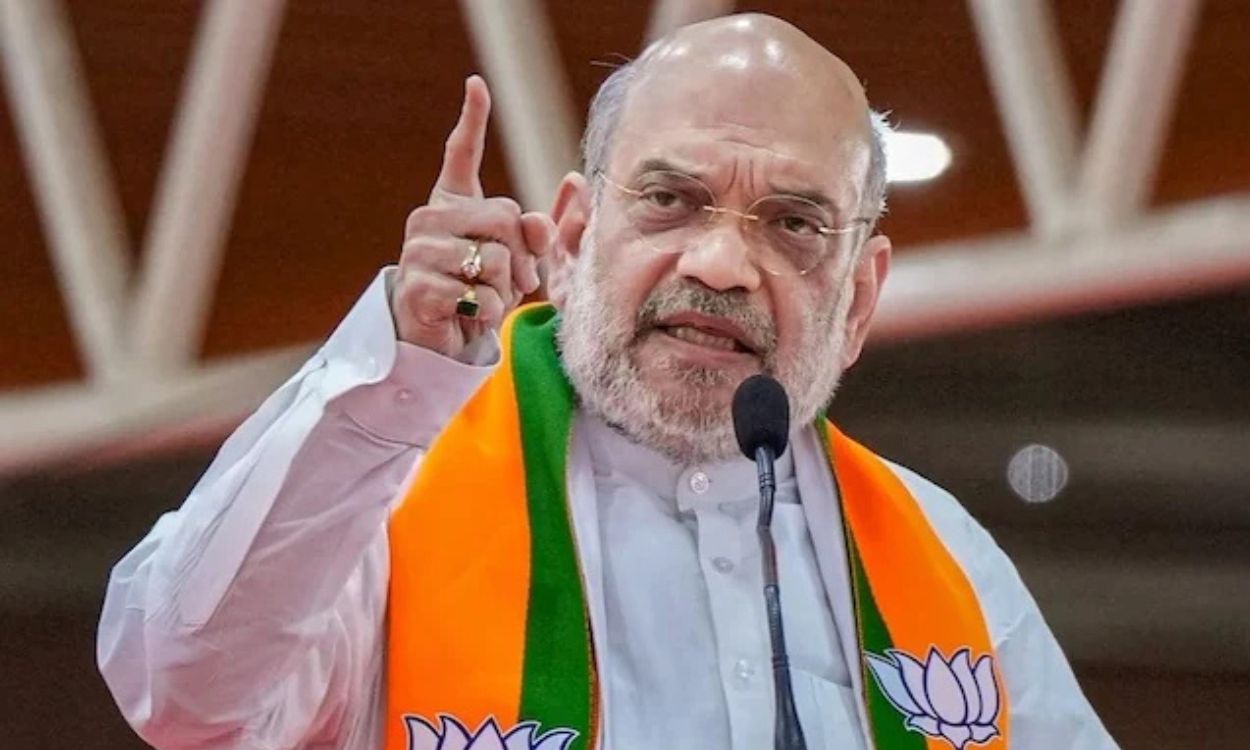Shah Aijaz CNI
Union Home Minister Amit Shah on Sunday paid heartfelt tribute to Bharatiya Jana Sangh founder Syama Prasad Mookerjee, saying that Jammu and Kashmir would never have become a part of India without his sacrifice. Speaking at an event in Anand, Gujarat, Shah remembered Mookerjee’s role in opposing Article 370 and his lifelong efforts to fully integrate Jammu and Kashmir with the rest of the country.
Shah said that Mookerjee gave his life for the cause of Kashmir and firmly believed that there should not be two constitutions, two heads of state, and two flags in one nation. Quoting Mookerjee’s famous slogan “Ek desh mein do Vidhan, do Pradhan aur do Nishan nahi chalenge,” Shah said the nation will always be indebted to him.
Calling July 6 a significant day, Shah reminded the audience that Mookerjee was born on this day in 1901 in West Bengal. He described him as a true nationalist and said that Mookerjee’s efforts were not limited to Kashmir alone. Shah also credited him and Swami Pranavananda for ensuring that West Bengal remained a part of India during Partition.
Amit Shah recalled that Mookerjee had initially served in Jawaharlal Nehru’s cabinet as Minister for Industry and Supply but resigned in protest over policies of appeasement. Later, he founded the Bharatiya Jana Sangh in 1951 with just ten members, a party which eventually grew into today’s Bharatiya Janata Party — the largest political party in the world with over 12 crore members.
Shah expressed pride in the BJP’s roots and said it was built on values of nationalism, culture, and dedication to the country. He saluted Mookerjee’s vision and dedication and said that his legacy continues to inspire millions.
Syama Prasad Mookerjee was a man of many talents — a patriot, educationist, parliamentarian, and statesman. He was the son of Sir Ashutosh Mookerjee, a respected judge and former Vice-Chancellor of Calcutta University. After independence, Syama Prasad served in the interim government but left due to ideological differences. He later founded the Bharatiya Jana Sangh, which became the ideological base of the BJP.
In 1953, Mookerjee went to Jammu and Kashmir to protest against the special status granted under Article 370. He was arrested on May 11 and died in custody on June 23 the same year. His death remains a major point in the political history of Kashmir.
Amit Shah’s speech marked a strong reminder of Mookerjee’s sacrifice and the political foundations that led to the full integration of Jammu and Kashmir with India.
